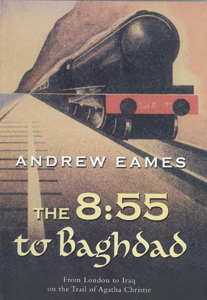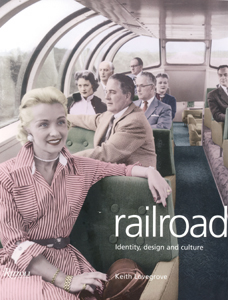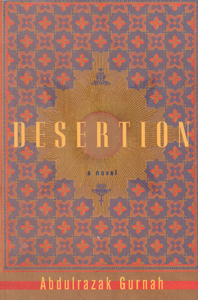![[whitespace]](/gifs/whiteline2.gif) |
Book Box

The 8:55 to Baghdad
A travel writer doesn't need an excuse to wax nostalgic about the Orient Express, but journalist Andrew Eames has a terrific motive for his rail journey. In 2002, on the eve of the U.S. invasion of Iraq, Eames retraced the 1928 journey of mystery novelist Agatha Christie from England to the ruins of Ur near Baghdad. As a measure of our devolution, Eames' meander through Eastern Europe to the Near East was a lot less comfortable than Christie's. Eames neatly shuttles between Christie sightings (her hotel rooms have become tourist shrines) and his own revealing encounters with Bulgarian braggarts and Iraqi dissidents, until he finds himself in the path of a NATO bombing run. Despite a penchant for British slang, Eames possesses a keen eye (a cityscape is "pierced by minarets, like needles sticking out of a hand-stitched carpet") and a dark sense of humor, especially when describing the schisms on his Iraqi sightseeing bus—proof that hell is other tourists. (By Andres Eames; Overlook Press; 403 pages; $25.95 cloth)

Railroad: Identity, Design and Culture
This coffee-table volume about the lore of rail travel is both a social and a design history, with chapters about the trains themselves, the service (mainly dining) en route and the advertising used to lure passengers aboard. These are all topics for whole libraries, and Railroad feels like a skimming over rather than a diving into the subject. But the pictures are glorious, from a private car outfitted like a mansion to the sleek boiler shrouds of 1930s streamliners like the 20th Century Limited and the Burlington Zephyr; from ad slicks of happy lounge passengers to an eye-catching spread of train posters, including a Pennsylvania RR ad for its air-conditioned cars that could be used today for March of the Penguins. The book includes up-to-date photos of streaky European and Japanese bullet trains, but it is clear that the golden age of railroading has long since been shunted to a siding. (By Keith Lovegrove; Rizzoli; 160 pages; $29.95 paper)

Desertion
In 1899, in an East African town, an Englishman materializes from the jungle like an apparition and is cared for by a local Muslim family. Recovered from sunstroke, the mzungu ("white man") begins an affair with the sister of the man who tended him. From this cross-cultural romance, Abdulrazak Gurnah, a Zanzibar-born novelist who migrated to England in the late '60s, spins a complicated story that stretches over three generations and isn't resolved until a flurry of coincidences in an unsatisfying coda. Gurnah's real topic is colonialism; and the novel feels most alive when he is satirizing the contemptuous airs of England's overseers, fleshing out the wary dance of dependence and defiance that ruled relations in his country for many decades or detailing the slurs endured by an African student in England. At times, Gurnah drops the pretense of fiction altogether to deliver some stinging observations about the ironies that rolled over the continent when the colonial enterprise began to collapse in the 1950s: "No one really understood what a panic was in the offing." (By Abdulrazak Gurnah; Pantheon Books; 262 pages; $23 cloth)
—Michael S. Gant
Send a letter to the editor about this story to letters@metronews.com.
[ Silicon Valley | Metroactive Home | Archives ]
|
![[Metroactive Books]](/books/gifs/books468.gif)


